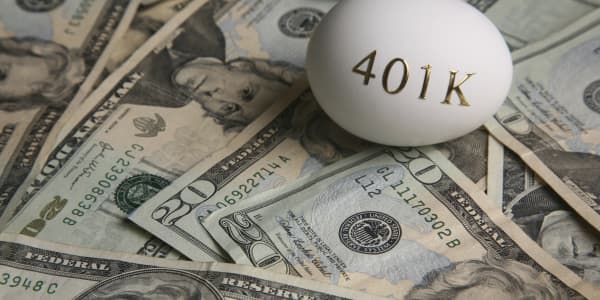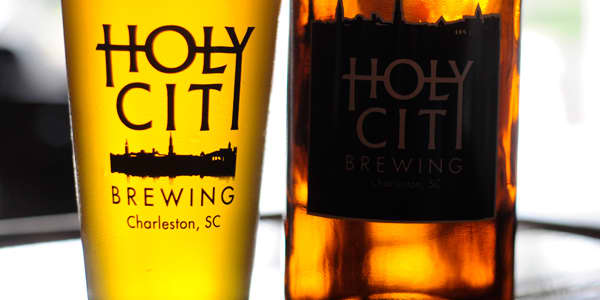Alana Nichols, Allison Jones, Evan Strong and Rico Roman may not be household names just yet, but they are ready for their star turn. They're among 80 skiers, snowboarders, curlers and hockey players representing TeamUSA at the Paralympic Winter Games in Sochi, Russia.
The international sports event featuring disabled "para-athletes" has long been overshadowed by the Olympic Games and its able-bodied athletes, but that disparity is changing, beginning with the partnership between the U.S. Olympic Committee and NBC to provide 52 hours of live and taped broadcast and streaming coverage of the 10-day event that began on Friday. It's the first time the event in being aired on U.S. network television.
The games are showcasing nearly 700 Paralympians from 45 countries who are competing for 64 metals in six sports—alpine skiing, snowboarding, cross-country skiing, biathlon, curling and sled hockey. The multiplatform package is being supported by six exclusive USOC sponsors—BMW, BP, Citigroup, Liberty Mutual Insurance, Procter & Gamble and The Hartford—who are its sole national advertisers.
Driven by a confluence of media exposure, public interest and their athletic excellence, Paralympians are on the verge of marketing stardom.
"There are immense opportunities moving forward for the Paralympic movement to take it to another level, pushed by the power of media," said Jeremy Snyder. Founder of The Factory Agency, he represents several Paralympians, including Taylor Lipsett, who despite suffering from a serious bone disease is a member of the U.S. sled hockey team that won the gold medal at the Vancouver Winter Paralympics four years ago.
This heralds not only a turning point in media coverage of the Paralympics, but also in the sports sponsorship arena. "We have seen a growing appetite from the American people in wanting to engage in the Paralympic Games and learn about the Paralympians," said Lisa Baird, chief marketing officer for the USOC. "Our research shows significant increases in both awareness and understanding of the Paralympics."
Focus on the Paralympics and its athletes hasn't come easy. Consider that for the 2010 Winter Paralympics in Vancouver, NBC aired only a highlights show and nothing live, with a similarly slim package for the London Summer Paralympics in 2012. (NBC and CNBC are part of NBC Universal). Those games, however, were extremely popular in the U.K., both in attendance and coverage on Britain's Channel 4. "There was so much demand for tickets, which were priced less than for the London Olympics two weeks earlier," said Tripp Mickle, the Olympics beat writer for the Sports Business Journal, "and Channel 4 aggressively promoted its coverage."
Another reason for the increased interest in para-athletes are the inspiring, well-publicized stories of American veterans, wounded in wars in Iraq and Afghanistan and living with amputations and other physical impairments, who have pursued sports to rehabilitate their lives. "There is a push by corporate America to get involved in supporting those returning soldiers," Mickle pointed out.
In fact, 18 of the 80 Paralympians on TeamUSA in Sochi are veterans, including four members of the sled hockey team. Roman, who lost his left leg in 2007 while serving his third tour of duty in Iraq, is currently starring in ads for Citigroup, Chobani and Liberty Mutual.
A Watershed Moment
The first Paralympic Games were in 1960 in Rome.
"London was the watershed moment for the Paralympics," according to Gary Zenkel, president of NBC Olympics. "They resonated in a way we hadn't seen before." Soon afterward, the network huddled with the USOC, as well as its Olympics advertisers, to discuss an increase in Paralympics coverage. "There was a push from sponsors to get broadcast exposure for the Paralympics," Mickle recalled.
Sponsors are reticent to discuss how much they're investing in the Paralympics, but not about their enthusiasm in supporting the athletes.
"We're the only exclusive Paralympic sponsor," said Laura Marzi, assistant vice president of marketing for group benefits at The Hartford, referring to the fact that the other five companies supporting the NBC/USOC coverage are also Olympic sponsors. The company has paralleled the marketing of its disability insurance products with the perseverance and accomplishments of the Paralympians the company supports.
"Our 'Ability Philosophy' is a simple concept, that people can achieve their goals," Marzi said. "It's a focus on what they can do, not what they can't."
(Read more: How to train like an Olympian)
The Hartford's two ads are airing throughout the 10 days of television and online coverage highlight Paralympic snowboarders Strong and Amy Purdy. The "What Defines You?" campaign, which also includes social media components, invites the public to share their Paralympic fervor via email, Twitter or Facebook. In return, The Hartford will donate $1 for each posting, up to $100,000.
(Read more: Olympic ads pluck heartstrings for profit)
Without my sponsors, I definitely wouldn't be where I am.Allison Jones2014 Paralympic skier and cyclist for USA
A majority of the winter Paralympians now have corporate sponsors, representing a sea change, especially compared to the deals Olympians and other able-bodied athletes have long enjoyed.
"When I first started this sport, I didn't have any sponsors, and it was really difficult to keep my head above water," said Nichols, who was paralyzed from the waist down in a snowboarding accident in 2002. She resumed athletics as a wheelchair basketball player, starring on the U.S. gold medal-winning team at the Beijing Olympics in 2008, then took up alpine skiing, winning two gold metals, a silver and a bronze in Vancouver and this past weekend a silver in Sochi. "After that, I connected with sponsors, and over the last four years I've been able to make a living as a Paralympic athlete and train full time without having to work."
In return for sponsors' support, which covers everything from equipment to travel, Paralympians—like other endorsed athletes—appear in ads, speak at public appearances and hobnob at company shindigs.
"But the sponsors always make sure that events don't interfere with training or competition," said Jones, who despite being born without a right femur and missing her right leg above the knee has become a two-sport phenomenon, in cycling and alpine skiing. Sochi marks her seventh Paralympics and fourth Winter Games. "Without my sponsors, I definitely wouldn't be where I am," conceded Jones, who won a bronze medal last weekend.
"Whether you're a Paralympian or an Olympian, you're an athlete," said Peter McGuinness, chief marketing officer for Greek yogurt maker Chobani, a Paralympic and Olympic sponsor whose ads featuring Jones and other Paralympians have been airing for several weeks. "We're a proud sponsor of TeamUSA, and we don't discriminate when it comes to that."
(Read more: What's that medal worth? Hint: Forget the gold)
Chobani joins a growing number of companies, including the six sponsors of the Sochi Paralympics, whose current marketing and advertising campaigns highlight their support of both Olympians and Paralympians. BP and BMW, for instance, each supports two Paralympians among six TeamUSA athletes.
"Our Paralympic Games sponsorship is a great way to connect with our customers, employees and partners around the world," said Hoon Kang, director of global marketing for Samsung Mobile. Samsung just released the second ad in its "What's Your Problem? Sports Doesn't Care" campaign, which includes a blog on which 30 Paralympians are sharing their experiences in Sochi via Samsung's Galaxy Note 3 phone.
"If you're a Paralympian in an ad, it's likely that the deal was structured in the very same as for the Olympic athlete you saw compete in Sochi a couple of weeks ago," said Peter Carlisle, managing director for Octagon Sports, whose stable of athletes it represents includes Paralympians. "Historically there are just fewer of those ads and fewer companies that activate with individual Paralympians, but that's changing."
Maybe so, but the money paid to Paralympians isn't nearly what Olympians earn—at least in the U.S. "In the U.K., they're commanding seven figures in endorsement deals," said Snyder, citing the London Paralympics as the bellwether. "They're rock stars there." And while the conversations he's having today with sponsors are more productive than when he started his agency more than three years ago, "in the U.S., we're a lot further behind." Snyder estimates that Paralympians command only about a third of what Olympians are paid by sponsors.
Whether in ads, social media or the actual coverage of the Sochi Paralympics, the American public and corporate sponsors are rapidly finding ways to embrace a group of incredible athletes whose place in the spotlight is long overdue.
"The more we see Paralympians, the more we become comfortable with them," said Rick Burton, professor of sport management at Syracuse University and the USOC's former chief marketing officer, who applauds the inclusivity of Paralympic campaigns.
As he pointed out: "An endorsement from a Paralympian means just as much [to sponsors] as one from an Olympian. They don't see the disability. They see a champion, and sponsors want to be represented by champions."
—By Bob Woods, Special to CNBC.com.




